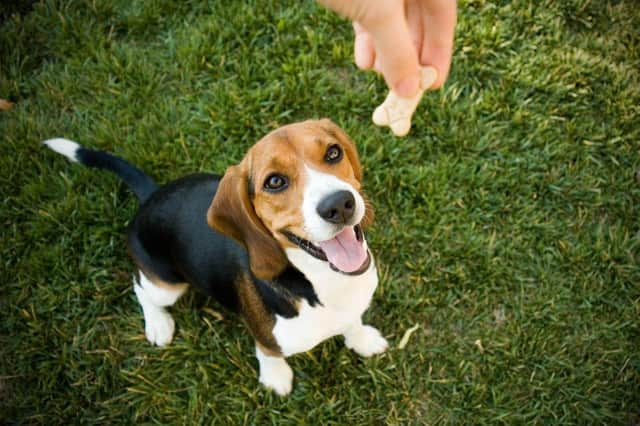Puppy Treat Training: Here are 5 expert tips on training your dog using treats as rewards 🐶


Training a puppy is one of the most demanding parts of dog ownership – but using your pup’s innate greediness can make it less of a challenge.
To help out, founder of dog tutor experts Puppy School Gwen Bailey has partnered with pet food pros Natures Menu to share her top tips when reward-based training your young dog.
Advertisement
Hide AdAdvertisement
Hide AdGwen, who set up Puppy School 20 years ago, explained: “Here at Puppy School, we have a small army of people ready to help families to raise their puppies. If you can catch them young, when they learn so quickly and while families really want to get things right, you can help educate them to build a strong relationship and good manners. These both help to keep young dogs out of rescue.”
Here are her top tips.
Rewards aren’t bribery
Although some owners object to the use of food or rewards in training, food and rewards are useful tools to teach our puppies what we want them to do and later – once the action is well learned – we can reduce the rewards given to a manageable level. Dispel the fear that your puppy will never learn to work for your approval, or that you will always need to go out for walks armed with pockets full of treats and toys to reward good behaviour.
Small and smelly works best
During puppy classes, many food treats will be needed to lure the puppy into doing the correct action so that it can be rewarded. Puppies will work for small rewards so make sure the treats are the size of a small pea (slightly larger for large puppies) so that they don’t get full up too quickly. Puppies will work harder for smelly, moist food.
A little goes a long way
Treats are treats for a reason – they are to be used little and often. However, if you introduce too many treats to keep your puppy working throughout a class that lasts one hour, it may upset their stomach. For this reason, try to introduce the right nutritional treat foods gradually over the week before the lessons start.
Praise your pup
Whilst food and games are useful at the start of the training journey, the main objective is to get your puppy working for you because he/she wants to please you. To do this, you need to develop a relationship with your puppy based on love and respect. Let him know that you are pleased when he does something correctly. As soon as you begin training, use praise in addition to the rewards offered. As your training develops and you begin to reduce the rewards given, your puppy will rely on your praise to know that he has done the right thing.
Don’t forget to play
Most puppies will work for food, but some are more interested in playing than eating. If your puppy is like this, you will need to use games with toys to encourage your puppy to work for you. The important reward from the puppy’s point of view is the game rather than acquiring the toy, so be sure to give the puppy a fun activity rather than just handing over the toy. Be sure to use your puppy’s favourite game for training, but be careful with sensitive, developing puppy mouths if you are using tug games – don’t pull too hard.”
Comments
Want to join the conversation? Please or to comment on this article.